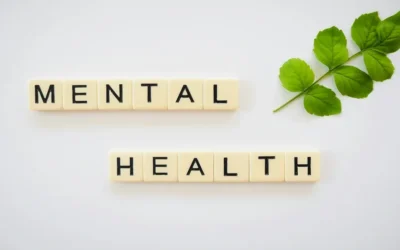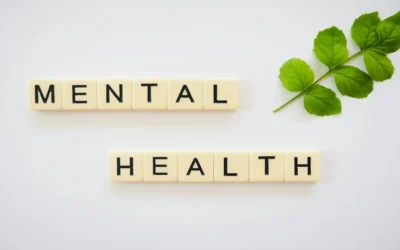The Role of Natural Supplements and Holistic Approaches Oppositional Defiant Disorder (ODD) represents one of the most challenging behavioral conditions affecting children and adolescents today. Characterized by persistent patterns of angry, irritable mood, argumentative and defiant behavior, and vindictiveness toward authority figures, ODD can significantly impact a child's development and family dynamics. While conventional treatments such as behavioral therapy and medication play crucial roles in management,...
The Natural Approach to Panic:
Explore evidence-based natural approaches to panic disorder, including nutritional supplements, herbal remedies, and mind-body practices that may complement conventional treatments and help manage panic attack symptoms.
Natural Approaches to Managing Depression:
A Comprehensive Guide to Supplements and Herbs Depression is a complex and widespread mental health condition affecting more than 17 million adults in the United States alone, with global numbers reaching hundreds of millions. While conventional treatments such as psychotherapy and antidepressant medications remain the foundation of care for clinical depression, many individuals seek complementary approaches to enhance treatment outcomes or address side effects. This comprehensive guide explores the scientific...
Natural Approaches to Managing OCD:
A Comprehensive Guide to Supplements and Herbs to OCD Obsessive-Compulsive Disorder (OCD) affects approximately 1 in 100 adults in the United States, significantly impacting daily functioning and quality of life. While traditional treatments like cognitive-behavioral therapy with exposure and response prevention (ERP) and medication remain the gold standard approaches, growing interest in complementary and alternative treatments has led to research on various supplements and herbs that may help manage OCD...
Natural Approaches to Managing Anxiety Disorders:
A Comprehensive Guide to Supplements and Herbs Anxiety disorders are among the most common mental health conditions worldwide, affecting approximately 40 million adults in the United States alone. While conventional treatments like cognitive-behavioral therapy and medication remain the foundation of care, many individuals seek complementary approaches to manage their symptoms. This comprehensive guide explores the evidence behind various natural supplements and herbs for anxiety disorders, providing insights...
Nutritional Approaches for Asperger’s Syndrome:
Current Evidence and Dietary Considerations for sperger's Syndrome Asperger's syndrome, now classified as part of autism spectrum disorder (ASD) in the DSM-5, is characterized by challenges in social interaction and communication, alongside restricted and repetitive patterns of behavior and interests. While conventional treatments focus on behavioral, educational, and psychosocial interventions, growing interest has emerged in the potential role of nutritional approaches in managing symptoms and supporting...
Nutritional Approaches for Dysthymic Disorder:
Evidence-Based Supplements and Dietary Interventions for Dysthymic Disorder Dysthymic disorder, now classified as persistent depressive disorder (PDD) in the DSM-5, represents a chronic form of depression characterized by depressed mood that persists for at least two years in adults. While milder than major depressive disorder in symptom intensity, its long-lasting nature can significantly impact quality of life and functional ability. Traditional treatments include psychotherapy and antidepressant medications,...
Adaptogenic Herbs and Nutritional Approaches for Stress Management:
Explore evidence-based approaches to stress management through adaptogenic herbs and essential nutrients. This comprehensive review examines ashwagandha, rhodiola, magnesium, B vitamins, and integrative strategies for building stress resilience.
Herbal Allies for Enhanced QEEG Outcomes:
Optimizing Brain Patterns for Neurofeedback Success Quantitative Electroencephalography (QEEG) and neurofeedback have emerged as powerful tools for assessing and optimizing brain function. By mapping electrical patterns across the brain and training individuals to modify these patterns, these approaches offer promising paths for addressing various neurological and psychological challenges. Increasingly, practitioners and researchers are exploring how specific herbs and botanical compounds might enhance QEEG...
Enhancing Neuroplasticity:
How Herbs and Supplements Can Boost Therapy and Neurofeedback Outcomes Neuroplasticity—the brain's remarkable ability to reorganize itself by forming new neural connections—underlies our capacity to learn, adapt, and recover from injury. This fascinating mechanism is the foundation for therapeutic approaches like neurofeedback and various forms of psychological therapy. Recent research suggests that specific herbs and supplements may enhance neuroplasticity, potentially amplifying the benefits of these...










